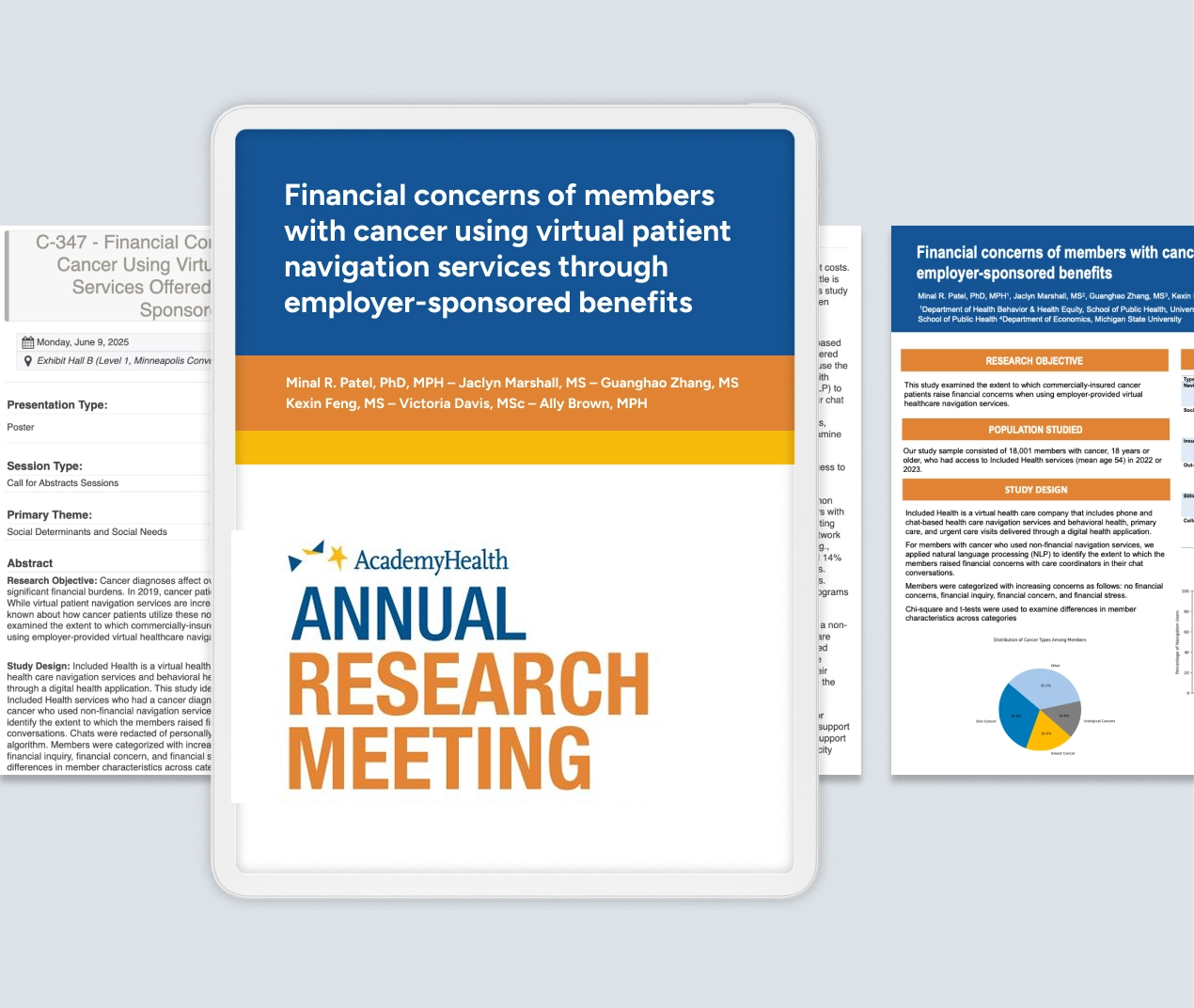Resources | Research
Financial concerns of insured people with cancer using virtual navigation services
Presented at the AcademyHealth Annual Research Meeting (June 7, 2025)

Study motivation
Cancer treatment can trigger significant financial stress, even for people with health insurance.
Virtual healthcare navigation services, offered through an employer or health plan, provide a range of support with financial matters, including questions and concerns about insurance coverage and out-of-pocket costs, billing and claims, medical debt, and social needs. Yet little is known about how often patients with cancer use navigation services to discuss financial issues, or the types of concerns they raise.
Included Health collaborated with researchers from the University of Michigan and Michigan State University to explore the links between cancer, financial stress, and the use of navigation services.
Methodology
- 18,001 commercially-insured adults (mean age 54) diagnosed with cancer, from all 50 states and the District of Columbia, with access to Included Health services.
- Using natural language processing (NLP), we examined phone- and chat-based interactions between Included Health care coordinators and members and to identify the frequency and nature of financial discussions.
- Based on this analysis, we assigned members to one of four categories (in ascending order of severity): no financial concerns, financial inquiry, financial concern, and financial stress.
What we found
- More than two-thirds of people with cancer (67%) discussed financial concerns or financial stress with their care coordinators, despite having employer-provided health insurance.
- Members with financial stress were more likely than those with financial concerns to make use of navigation services including concierge referrals, expert medical opinions, and case management.
- Members were comfortable discussing sensitive financial topics in virtual chat settings.
Implications
- Our findings highlight that financial toxicity — financial strain associated with medical care — remains a significant risk for people with cancer, even those with health insurance.
- Patients view virtual navigation services as a source of trusted, independent advice and guidance for financial questions and concerns.
- Integrated, dedicated financial support is an essential component of healthcare navigation services, especially for people who have cancer and other costly or chronic conditions.